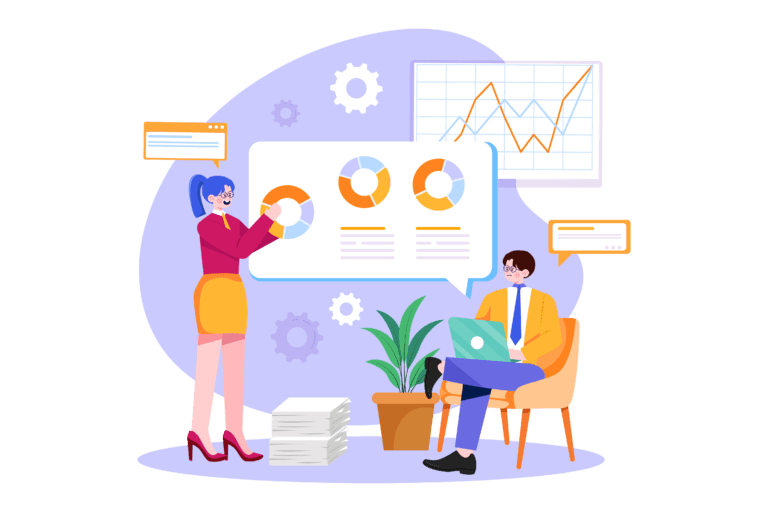Banking Industry has been tangling with data since the very beginning, pioneering the use of analytics to derive insights for creating better, more profitable business models. But as we look ahead, the most impactful data-driven solutions will go well beyond analytics and will include built-in Artificial Intelligence based on deep learning technology that augments an organization’s capabilities in compelling new ways. Solutions that see, hear, speak, and understand our needs and emotions—using natural methods of communication, enhanced by vast amounts of data from sources as varied as search engines, news, videos, and more—will transform every aspect of the business.
Artificial Intelligence will play a key role in supporting digital transformation for the Banking Industry. Below are the factors, the Banking Industry are transforming their operations to meet their current challenges and to prepare for what remains a very exciting future.
1. Manage Risk
Machine learning boosts analytical capabilities in risk management and compliance to help you make more informed security decisions.
a. Real-time intelligence:
Optimize risk management by getting risk results as quickly as possible for faster, better everyday decisions. Real-time intelligence also helps you meet regulatory requirements more effectively.
b. Improve modeling accuracy:
Radically improve risk analysis with predictive modeling—and fuel innovation with more simulations and “what if” analyses.
2. The fight against fraud
AI has been on the frontlines against fraud for a while now, but these days, it’s more powerful than ever, thanks to machine learning and stronger computing power.
a. Quick detection:
Give your security team the tools it needs to protect your bank and your people against increasingly sophisticated cyberattacks with real-time analysis for faster threat detection.
b. Protect and maximize:
Real-time screening is simple to use, and, more importantly, it strikes the right balance between detecting violations and processing customer payments without unnecessary delays. You’ll also find intuitive alert management tools to help streamline your operations, while graphical dashboards show risk levels.
c. Stay flexible:
Reduce operating costs with flexible screening tools that seamlessly integrate with multiple banking and financial services business systems.
3. Making smarter bankers
Applying what we’ve learned in bettering the customer experience, AI now allows bankers to be more collaborative and productive without sacrificing security.
a. Empower bankers:
Gain rich customer insights with speed and efficiency to help your employees better understand their clients.
b. Workplace productivity:
By giving your bankers access to real-time information on whatever devices they choose, your organization can keep costs down and increase productivity by fostering collaboration and faster decision making.
c. Keep them happy:
AI can help you understand how your team is handling its workload and help prevent costly turnover.
4. Not business as usual
Reimagining and simplifying business processes will give Banking Industry the edge they need to compete in the rising digital economy while improving their bottom lines.
a. Save time and money:
Digital agents are more cost-effective in dealing with customer requests—plus, they save your workforce valuable time.
b. Get answers quickly:
Engage your customers with a faster, more customized service that encourages people to bank more often, which will also increase revenue.
c. Reach more customers:
You can only have so many bankers working to serve more than their top-tier customers. The use of bots means you can reach more customers at every financial level.
5. Data is the key
In the face of regulations, legacy systems, and cost pressures, financial institutions must utilize big data to lower costs, improve efficiency, and unlock investment potential.
a. Optimize operations:
Machine learning—a computer’s ability to take data and improve performance without programming—helps you gain insight into risk and operational models, as well as act on real-time intelligence to enhance risk management while meeting all-important regulatory requirements.
b. Defending your data:
Security in the cloud may be different from security on-premises, but it’s just as important. That’s why Microsoft has made a significant investment in building cloud infrastructure to provide continuous monitoring, increased transparency, and digital privacy protection, allowing your customers to take advantage of all the cloud offers in a more secure way.
6. Innovation for all
Artificial Intelligence delivers a better customer experience by engaging people in a natural, highly personal, and innovative way. Gain more loyalty and improve your bottom line.
a. Know your customers:
Get a 360-degree view of your customers with predictive intelligence that shows their buying habits and financial aspirations, which can boost overall performance and profitability for your organization.
b. Trust through security:
How do you continue to innovate with an eye toward productivity and customer satisfaction while maintaining appropriate levels of security? Success means securing identities, apps, data, devices, and infrastructure with the most financial services–ready cloud provider.
Source: https://cloudblogs.microsoft.com/
Global iTS is a leading Microsoft Dynamics 365 ERP and CRM Partner with offices all over GCC (Bahrain, Saudi Arabia KSA, Oman “Muscat”, UAE “Dubai”, and Kuwait), with domain expertise in Financial Services Sector Digital Transformation like” Retail Banking, Commercial Banking, Insurance Providers, Private Equity, and Investment Banking.





